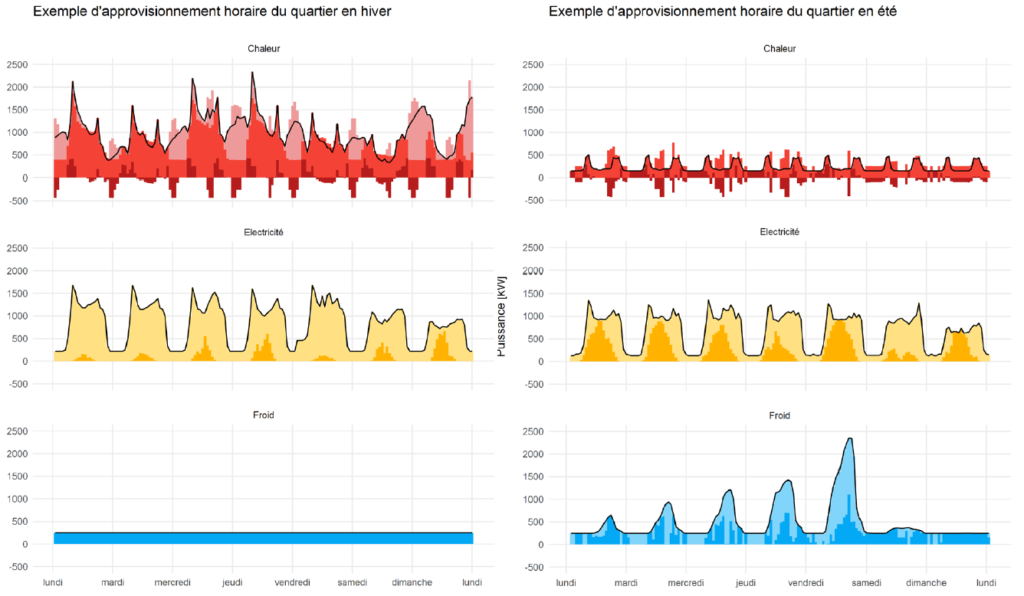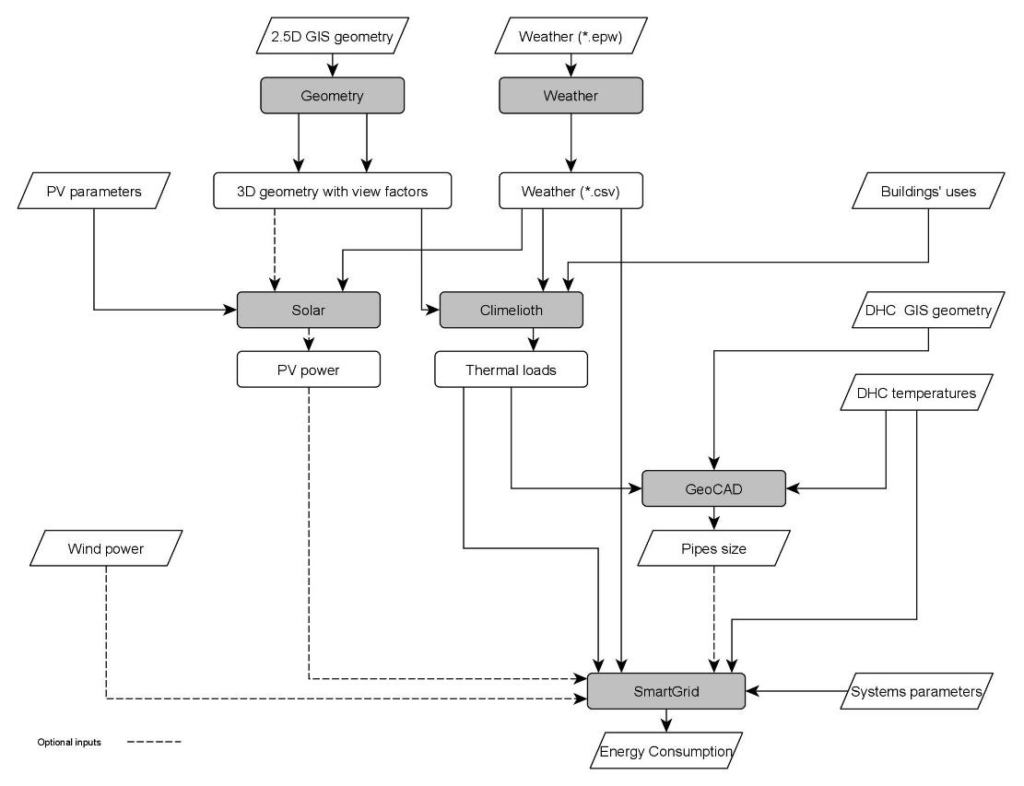DESsim, open source simulation of district heating and cooling networks
Article published on November 3rd, 2020
District Energy Systems simulation or simulation of district heating and cooling networks
We have created DESsim, an open source framework, for the simulation and optimization of building energy systems connected to a district heating and cooling networks

Copyright: © Elioth
The design of district heating and cooling (DHC) networks is crucial to increase the mutualization of energy supply and demand between individual buildings to reduce therefore the energy, environmental and financial cost of the energy systems. DHC networks are also useful to increase the share of renewable energy sources in cities, where localized production is more challenging.
To date, there is no simple tool to study the results of this type of network. At Elioth, we have therefore created DESsim, an open source python framework, for the simulation and optimization of building energy systems connected to a district heating and cooling networks
The developed method is based on the open-source Python library PyPSA and is adapted for the early-design exploration of multiple scenarios and their optimization based on GIS input data.

Flowchart of the proposed simulation framework
We have already successfully used this method on several projects and competitions at urban scale, including the Bruneseau district.
In a paper presented at the EuroSun 2020 conference last September, we show the application of the proposed method into a fictitious case study of a new district in France composed of mixed-use buildings connected to a district heating and cooling network and including renewable energy sources. The results compare two scenarios of energy systems minimizing either greenhouse gas emissions or the energy cost.

In this example, it is also very possible to optimise carbon and energy costs in order to have more virtuous networks which at the same time contribute to reducing the energy bill.
To better understand how the loop works, the sankey of the network is shown below.

Simplified Sankey representation of the annual energy flows for variant 1 – Minimisation of CO2e emissions
What we share still has to be improved on the calculation of building needs. Thanks to its flexible and platform-agnostic conception and its integration in a workflow automation software, we argue that this framework is particularly adapted for the exploration of multiple design scenarios.
As part of our open source approach, DESsim is available freely on Gitlab, documented and open to all contributions.
The paper presented at EuroSun2020, which should soon be published, is available here.

Giuseppe Peronato
Project leader Environnements

Marguerite Fournier
Project leader Environnements

Guillaume Meunier
Managing Director - Head of the Environment Unit
En savoir plus sur

Un collectif unique d’ingénieurs, designers, inventeurs
Nous sommes un atelier d’ingénierie avec un grain pour l’innovation. Notre équipe multidisciplinaire composée d’ingénieurs, d’architectes, de designers et de data scientists, intervient en consulting et en maîtrise d’œuvre d’innovation bas carbone.


